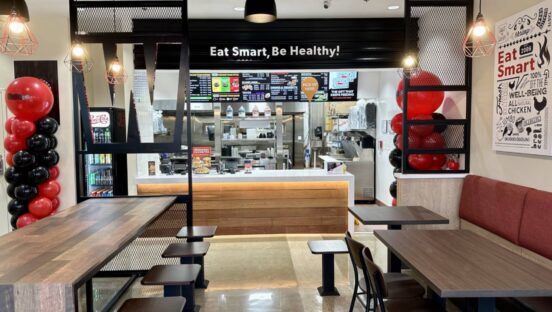The fast-casual industry is due for some disruption. The once-explosive category has seen sales soften in the last year, while the poster child for fast casual, Chipotle, has struggled to recoup customers after a food-safety scare in 2015.
To encourage fast-casual innovation, QSR, together with CIA Consulting and sponsor Avocados from Mexico, is co-hosting “Disrupting Fast Casual: Inspiring the Next Wave of Growth & Innovation in Fast-Casual Restaurants.” The event, held April 18–20 at the Culinary Institute of America’s Hyde Park, New York, campus, is designed to equip operators with new techniques for launching, growing, and expanding their fast-casual restaurant operations.
Erik Oberholtzer is one of fast-casual innovators helping guide the conversation at Disrupting Fast Casual. A chef by trade, Oberholtzer is now elevating the fast-casual experience at Los Angeles–based Tender Greens, which he cofounded with fellow chefs Matt Lyman and David Dressler in 2006. The brand has since grown to 24 locations, and counts Union Square Hospitality Group founder Danny Meyer as an investor.
Here, Oberholtzer shares his thoughts on how fast-casual professionals can further disrupt the industry—and how he and his colleagues are working to do that at Tender Greens.
How can operators disrupt the fast-casual industry?
What comes to mind is brands differentiating within that category. What you have in quick casual is brands falling into that “Chipotle of” category, and I think, while that model works and there are some great new brands doing that service model, Tender Greens, Mendocino Farms, and others are examples of models that are looking at new service styles, leveraging technology to enhance hospitality, and, in our case, leveraging the chef talent at the restaurant level so that we’re flexible in real time.
We’re innovating daily, and those innovations are happening at all of the restaurants, independent of what’s happening at the corporate level or other locations. We can be flexible and hyper local. We’re putting all of our energy and attention into that as a key differentiator, with supply chain being the other, working with things like urban farming, hydroponics, and aquaponics.
What do customers want from fast-casual brands today?
They want them to be intuitive, seamless, authentically transparent, and aligned with their lifestyle.
Fast casual has had some recent growing pains, but do you think it’s moving in the right direction?
I’m very optimistic. I think, if anything, this space continues to disrupt the fast-food space and the casual space, and even fine dining. It has begun to change the way people eat in this country because of the service model and the accessibility. That’s good for the industry, that’s good for the country as a whole, and it’s beginning to shift the relationship we have in this country with food from negative to positive.
Is there enough opportunity for fast casual 2.0 brands to scale to national concepts?
We’re banking on it. But it requires corroboration and partnerships between the growing brands and the supply chain supporting that brand. That brings me back to the scalable environment of indoor agriculture, particularly in regions where you don’t have optimal growing conditions. There’s an economic message that we in the space are sending to farmers to begin to shift their farming practices to accommodate our quality levels and volumes.
Want to join Oberholtzer and other leading fast-casual voices at Disrupting Fast Casual? Click here.







